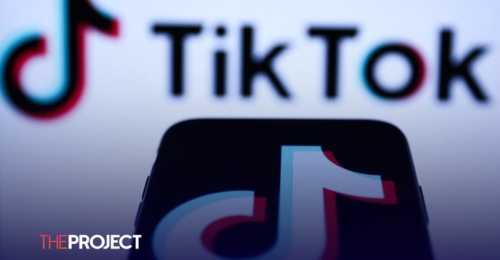Four bereaved British families have filed a lawsuit against the video-sharing platform in the US and its parent firm, ByteDance, over access to their children's social media accounts.
They told the BBC's Sunday With Laura Kuenssberg program that access could clarify what had led to the deaths, with one mother asking, "Why hold back from giving us the data? How can they sleep at night?"
The wrongful death lawsuit claims Isaac Kenevan, 13; Archie Battersbee, 12; Julian "Jools" Sweeney, 14; and Maia Walsh, 13, all died from injuries suffered while taking part in online challenges in 2022.
It accuses TikTok of pushing dangerous pranks and challenge videos to children to boost engagement time on the platform.
The families are claiming their children died after doing a so-called "blackout challenge" on TikTok.
The blackout challenge encouraged viewers to asphyxiate themselves until they lost consciousness.
According to TikTok, it does not allow content showing or promoting dangerous activity or challenges, and it proactively finds 99 per cent of content removed for breaking these rules before it is reported to the firm.
The online world can be a bumpy ride 🚗 Help your kids steer clear of the hazards with these tips 👇 Find helpful videos, conversation starters and more at: https://t.co/RHa1YRcQjv
— eSafety Commissioner (@eSafetyOffice) October 15, 2024
During a group interview with a parent of each of the four children, Isaac's mother claimed the platform still allowed harmful content, including challenges.
Lisa Kenevan said TikTok issued "the same corporate statement every time" stories on the topic appeared in the media".
"It's an insult", she said, adding that the families were seeking accountability.
Her son's final video showed him laughing each time he passed out.
"He's been influenced by something or someone who has watched these challenges on TikTok", she said.
March 8, 2022, had been a "very ordinary day", Ms Kenevan said.
"We came home, I was cooking dinner, he was upstairs, and he was a bit of a practical joker ... when I called upstairs for dinner, he didn't answer, so I didn't think that was unusual - then the third call to him I got desperate, and there was no answer," she said.
"So I went running down the stairs, I got a hammer from the garage, I went running upstairs, bashed the door down, and that's where I found Isaac, unconscious."
He died the following day.
When she let Isaac download the app during lockdown, she said she had thought TikTok was safe and fun, with users taking part in "innocent challenges, including the bottle flip, the floss and ice bucket challenge.
"Democratizing access to social media data, particularly around newer platforms like TikTok, will also allow researchers to conduct rigorous scientific analysis to inform the public, press, and policymakers about the reality of what occurs online." 💫https://t.co/CivUogCDOW
— Design It For Us (@DesignItForUs) January 23, 2025
Liam Walsh described telling police, "I want her data scooped" about 15 minutes after first seeing her body "because nothing else makes any sense into why this child should end up like this, nothing".
Ellen Roome, mother of Jools, has been campaigning for "Jools's Law" to give parents the right to access their children's online activity after they die.
She told the BBC program there were "vast similarities about how all four children took their lives in a very similar way, and we all believe it's something to do with TikTok".
"I said to the detective that night, sitting there with Jools's body in between his dad and I - I said 'take Jools's phone and use facial recognition and set yourself a pin'".
She said officers told her they would not "tamper" with the phone but later could not gain access.
Five months later, Jools's closest friend guessed his pin by suggesting spelling out his name in numbers.
But the data had been erased by then, Ms Roome said.
US-based legal resource Social Media Victims Law Centre, for parents of children harmed by social media use, filed the lawsuit in Delaware on behalf of the families.
With AAP.





























